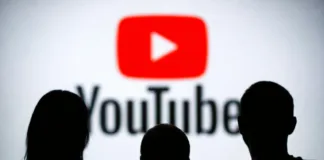By Bob Garlick | 3 Narratives News | September 12, 2025
Charlie Kirk’s Life Can’t Be Reduced to Black and White
Charlie Kirk’s sudden death has been met with the kind of polarization that defined his career. To many on the right, he was a courageous voice who energized young conservatives.
To many on the left, he was a provocateur whose rhetoric fueled division. But reducing his life to either caricature misses the more complicated reality: Kirk’s politics were a mix of hard-right orthodoxy, tactical moderation, and contradictions that reflected both the fractures and the possibilities of today’s conservative movement.
What He Was For
At his core, Kirk believed in cultural combat as the engine of politics. He built his platform on defending free speech on campuses, arguing that conservative students should not be silenced by progressive orthodoxy. He was unapologetically pro-police, rejecting defund-the-police movements, and a staunch supporter of gun rights.
His loyalty to Donald Trump was unwavering, embracing the “America First” agenda of tariffs, economic nationalism, and populist rhetoric. Equally central were his Christian conservative values. He opposed abortion, defended traditional family structures, and advocated a more prominent role for religion in public life. Kirk also supported ICE and border security, framing strong immigration enforcement as essential to national sovereignty.
What He Was Against
Yet his politics weren’t without limits. Kirk rejected the idea of mass deportations, warning that blanket removals of immigrants would hurt families and be politically untenable. He aligned with Trump’s skepticism of foreign entanglements, criticizing “endless wars” and urging a more restrained approach to U.S. military involvement abroad.
Economically, he railed against globalist trade regimes like NAFTA and dependency on China, framing them as betrayals of American workers. Domestically, he made “cancel culture” and “woke politics” his defining battleground, attacking DEI programs, affirmative action, and progressive education policies. He also cast Big Tech as a censorious force targeting conservatives, positioning himself as a defender of open digital platforms.
The Nuanced Reality
Taken together, these positions reveal a more complicated figure than either his critics or his admirers might admit. Kirk was not simply a reactionary firebrand, nor was he a sober policy wonk. He fused hard-right values (anti-abortion, evangelical Christianity, pro-Trump loyalty) with selective pragmatism, such as his rejection of blanket deportation or his calls for “smart” enforcement.
This combination made him effective at mobilizing a broad conservative base while also drawing fire from every direction. To his supporters, he was a truth-teller for forgotten Americans. To his critics, a propagandist who inflamed grievances. In reality, his life was about transforming culture into politics and demonstrating how identity, religion, and media could mobilize a generation, even if his methods deepened the very polarization he claimed to resist.
Charlie Kirk’s legacy, then, is neither simple villainy nor sainthood. It is the story of a man who understood the cultural stakes of American politics and who built a career by embodying both its contradictions and its momentum. His life reminds us that influence in modern politics rarely comes from policy alone, but from the ability to turn narrative into movement.
What Is an AI-Driven Op-Ed?
An AI-driven op-ed is written with AI assistance but guided by human prompts and edits. The AI provides structure and synthesis, while the human creator sets the goals, tone, and emphasis. The final piece reflects the creator’s intent, with AI serving as a tool to extend that vision.
My Response
It is a tragedy that people with the insight and ability to inspire others, as Charlie did, as Martin Luther King did, as Kennedy did, are cut down by assassination. Their impact is so great that those who fear them would rather see them dead. Listening to powerful arguments, whether from the left or the right, is an opportunity to raise awareness and broaden our understanding. When such voices are destroyed, it is not one side that loses, but all of us.



[…] the heat of today’s controversies, it is tempting to reduce public life to villains and heroes. A figure speaks, a corporation reacts, a politician weighs in — suddenly the nation feels […]